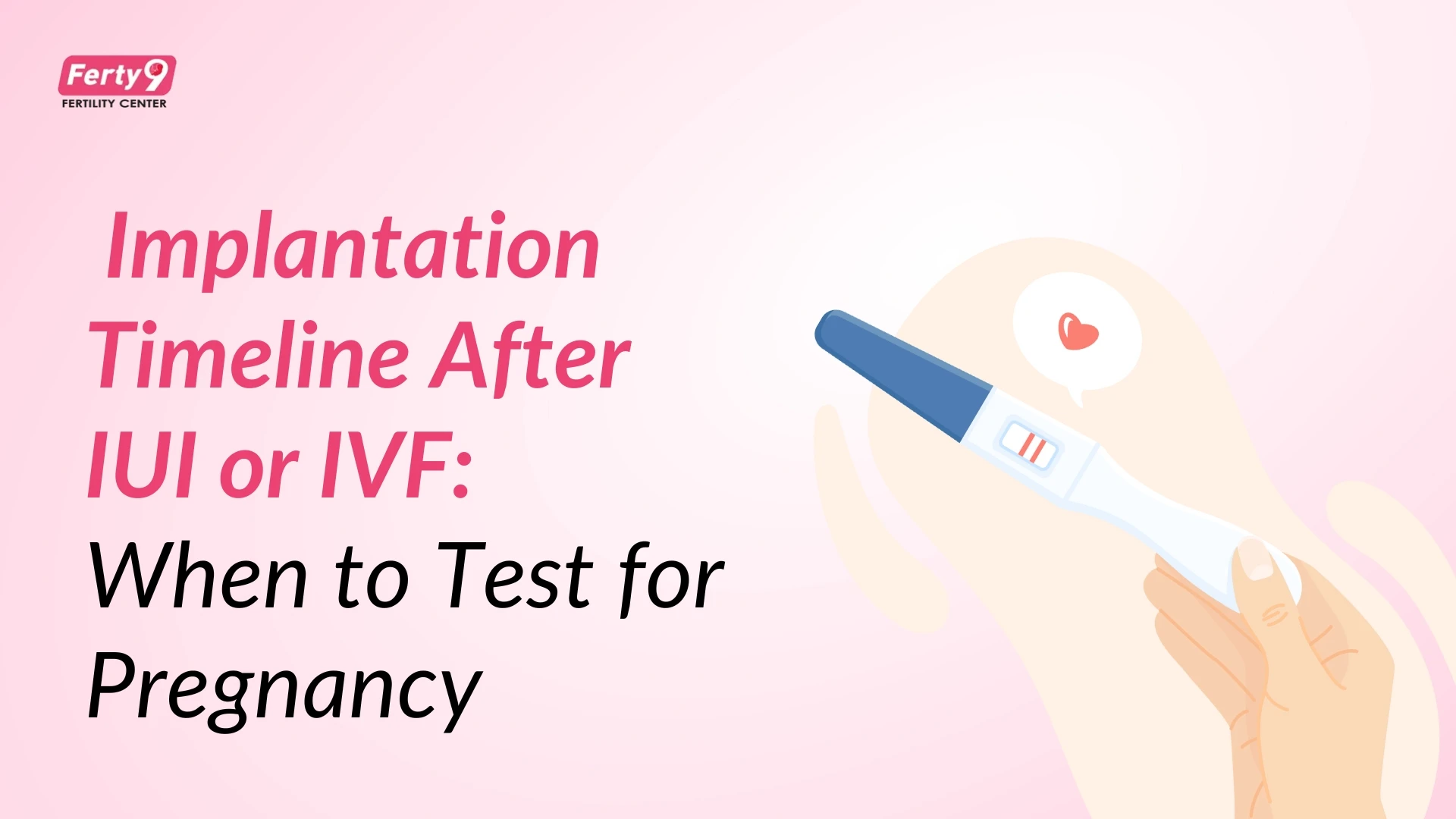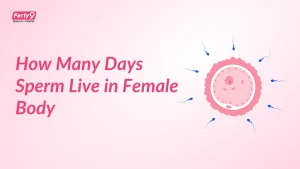For every couple undergoing fertility treatment in India, the days following an IUI or IVF procedure can be filled with a mix of hope, anxiety, and anticipation. This period, often called the “two-week wait,” is when the magic of implantation is supposed to happen. At FERTY9, we understand that you are keenly aware of every little change in your body and are eagerly waiting for a positive sign.
A common question we hear from our patients is, “When does implantation happen, and how soon can I test?” Understanding the timeline can help manage expectations and reduce some of the stress during this waiting game. Let’s break down the implantation timeline for both IUI and IVF in simple terms.
Also Read: How Soon Can a Pregnancy Test Be Taken After Implantation?
The Journey After IUI (Intrauterine Insemination)
In an IUI procedure, specially washed and concentrated sperm is placed directly into the uterus around the time of ovulation. From here, nature takes its course.
- Step 1: Fertilization (Day 0-2 after IUI) The sperm must travel from the uterus into the fallopian tubes to meet the egg. Fertilization, the union of the egg and sperm to form an embryo, typically happens within 12 to 24 hours after ovulation.
- Step 2: The Embryo’s Journey (Day 3-5 after IUI) The newly formed embryo starts as a single cell and begins to divide rapidly. It travels down the fallopian tube towards the uterus, a journey that takes several days.
- Step 3: Implantation (Day 6-12 after IUI) This is the crucial final step. The embryo, now a bundle of cells called a blastocyst, searches for a nourishing spot in the uterine lining to attach itself. Implantation generally occurs between 6 to 12 days after the IUI procedure.
Once the embryo has implanted, it starts producing the pregnancy hormone, hCG (human Chorionic Gonadotropin). This is the hormone that a pregnancy test detects.
The Journey After IVF (In Vitro Fertilization)
The IVF timeline is a bit different because fertilization happens in the lab. The key factor is the age of the embryo when it is transferred into your uterus. In India, embryo transfers typically happen on Day 3 or Day 5 of the embryo’s growth.
If you had a Day 3 Embryo Transfer
- Day 1-2 after Transfer: The embryo continues to grow and develop into a blastocyst inside your uterus.
- Day 3-7 after Transfer: The blastocyst hatches from its shell and begins the process of implantation. Successful implantation usually occurs between 5 to 7 days after a Day 3 transfer.
If you had a Day 5 Embryo Transfer (Blastocyst Transfer)
- Day 1-2 after Transfer: A Day 5 embryo is already a blastocyst, so it’s ready to implant much sooner. It will hatch from its shell and begin attaching to the uterine wall. Implantation is expected to happen within 24 to 48 hours after a Day 5 transfer.
As you can see, implantation happens much quicker after a Day 5 IVF transfer compared to an IUI or a Day 3 transfer.
Learn more about IVF Success Rate Factors
The Big Question: When Should You Test for Pregnancy?
It is incredibly tempting to take a home pregnancy test just a few days after the procedure. However, we strongly advise against this. Here’s why:
- The “Trigger Shot” Effect: In many IUI and IVF cycles, a “trigger shot” of hCG is used to mature the eggs before the procedure. If you test too early, the pregnancy test can pick up the leftover hCG from this injection, giving you a “false positive.” This can be emotionally devastating.
- Risk of a False Negative: Testing too soon might result in a negative test, even if you are pregnant. This is because the hCG levels from the newly implanted embryo may not be high enough yet to be detected by a home test. Seeing a negative result can cause unnecessary stress and disappointment.
The Recommended Waiting Period
To get the most accurate result, it is best to wait for the full two weeks (14 days) after your IUI or IVF procedure.
- After IUI: We recommend waiting at least 14-16 days after the procedure.
- After IVF: Your doctor will schedule a blood test, called a Beta hCG test, around 12 to 14 days after your embryo transfer. This is the most reliable way to confirm a pregnancy.
A Final Word from FERTY9
The two-week wait is a test of patience. It’s a time to nurture yourself, stay positive, and allow your body the time it needs. Try to keep yourself busy with light activities that you enjoy. Avoid heavy lifting and stressful situations.
Remember, every sign and symptom during this period can be misleading. The only thing that provides a clear answer is the blood test scheduled by your doctor.
We are with you on this journey. Please follow the specific instructions given by your FERTY9 specialist and do not hesitate to reach out to us with any concerns. We are hoping for the best possible outcome for you.




























